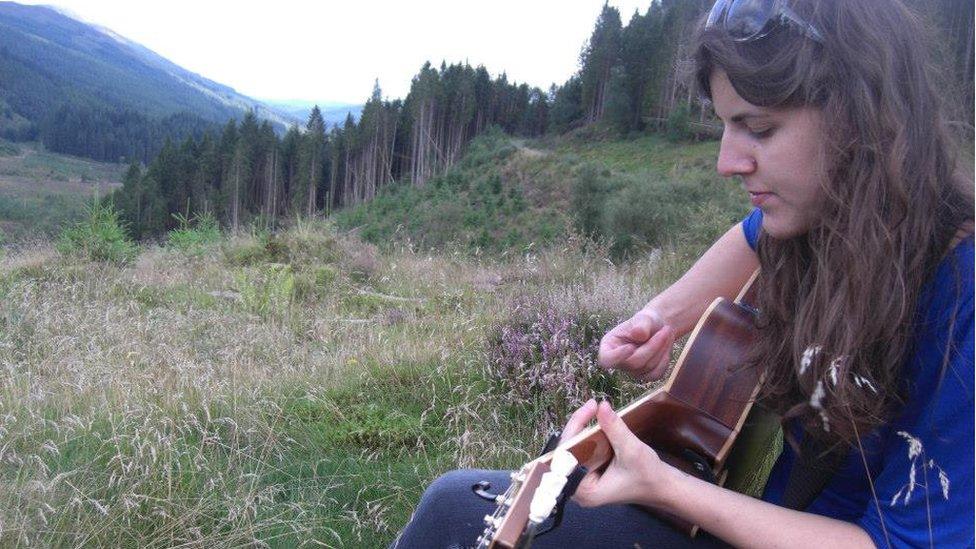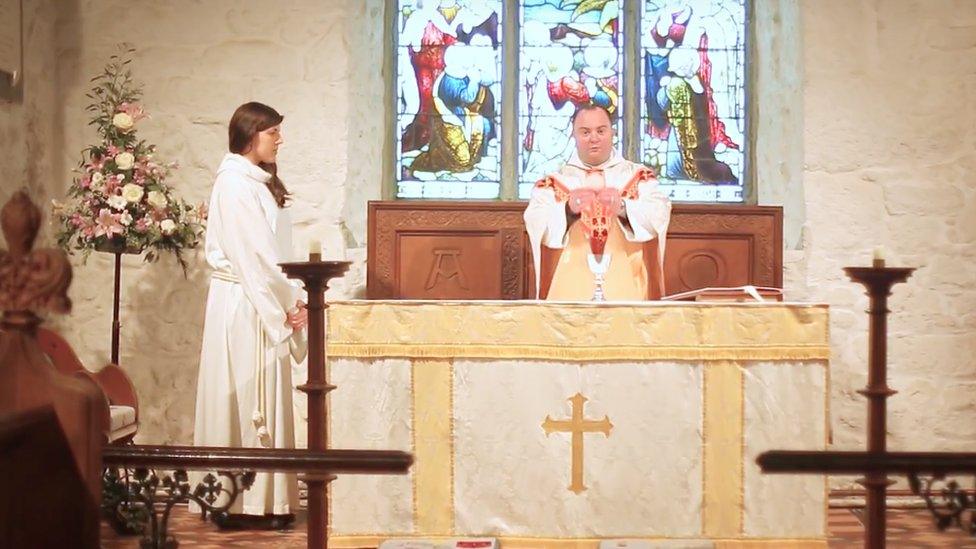With 25% of clergy due to retire in the next five years, the UK needs more
- Published

We're running out of vicars.
So if you're planning to get married or having a christening soon you may want to check your church availability early on.
That's because 25% of clergy in the Church of England are retiring in the next five to 10 years and in some parts of the country that number is 40%.
The problem is not enough younger vicars coming through to replace older ones, so the church is relying on more unpaid people to fill roles.
A vicar is a legal post in the Church of England who has been ordained as a priest.
So if you've ever wondered: All vicars are also priests.
We spoke to 25-year-old Rose Grigg from Cornwall, who is currently training full-time to become a vicar, having left her job in the London music industry.

Life changing
"It felt like something not old and boring at all but life changing," says Rose about her change of profession.
She was working with a record label after she graduated from Westminster University.
Now she's an example of the person the church wants to attract in the next few years to fill a large vicar sized hole.
Just thirteen per cent of vicars and priests are under the age of forty.
"I always grew up in the church, but never absolutely thought I would become ordained in the church."
Lay people - folks who work for free - are increasingly performing tasks that were once just done by the vicar, like visiting the sick and even leading some services.
Rose wanted to dedicate her life to a radical cause, that involved "laying your life down for others and fighting injustice".
She fell into working with the church through music and playing in bands around services.
"The more I got involved in that, it made me feel more alive."
Rose says she realised she wanted to serve other people and live a life "full of love".
She told Newsbeat there were still big reservations about leaving music: "Part of me was thinking 'I don't want to get sucked into this institution that I don't always agree with'.
"[Something] that is a bit old, a bit middle class and a bit traditional.
"Even though it felt unattractive, in some ways that felt really attractive."

Rose spent years as a musician before training to become a vicar
Rose thinks that the church is 30 years behind the rest of the world.
The number of female clergy has increased in the past three years, especially in senior roles, according to figures.
Over a quarter of full-time priests and more than half of part-timers are women.
But despite this growth of female numbers in the church, there are other issues causing friction.
The Catholic church and Church of England, do not allow same sex weddings and the numbers of vicars from ethnic minority backgrounds is still small.
Just 3.4% of unpaid clergy are from black and minority ethnic communities.
"That form of traditional I find quite difficult," says Rose.
"It can be very frustrating to work in an institution which is not as liberal and forward thinking as the rest of society can be."

Rosie has almost completed her training to become a vicar in Cornwall
Difficult journey
Rose admits that some aspects of the job are intense.
"You do absolutely have to be the rooted person in the room when everyone else's world is falling apart."
Many of her friends are touring with bands and working back stage at gigs, but her day job couldn't be any more different.
During her training, as well as studying the messages and readings of the bible, trainees often have to be in end-of-life circumstances.
"Back in the hospital we prayed along side a woman as she died. That is some quite intense stuff."
Find us on Instagram at BBCNewsbeat, external and follow us on Snapchat, search for bbc_newsbeat